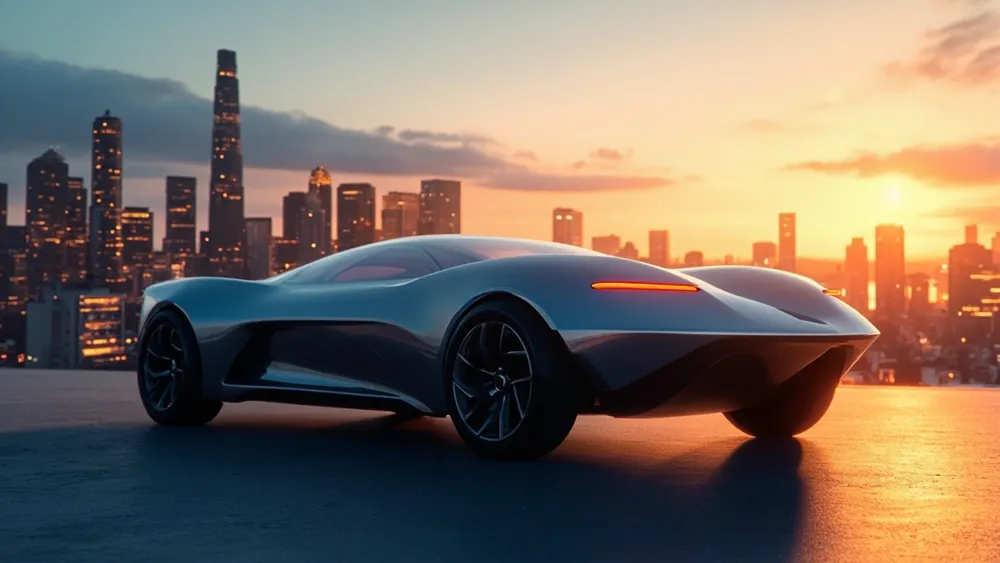Xiaomi targets Tesla's bestseller in China with its longer-range YU7

Xiaomi's recent introduction of the YU7 SUV marks a significant moment in the highly competitive electric vehicle (EV) market in China, where the balance of power increasingly hinges on innovation and consumer preferences. As the smartphone giant pivots into the automotive sector, the YU7's striking specifications—offering a range of 760 kilometers per charge—could redefine market dynamics and present formidable competition to Tesla’s Model Y, currently among the top sellers in the region. This launch not only underscores Xiaomi's ambitions in the EV landscape but also highlights the growing pressures on established players, particularly under the scrutiny from both consumers and regulators.
Market analysts, particularly those from Citi, have projected that the YU7 could capture as much as 30,000 units in monthly sales, potentially displacing Tesla's stronghold in China's lucrative electric vehicle market. At a price point of approximately 250,000 to 320,000 yuan ($34,700 to $44,420), Xiaomi's SUV effectively challenges Tesla’s pricing strategy, especially given the latter’s recent price adjustments to mitigate competition. But what happens when a well-established brand like Tesla faces stiff competition from a tech giant known for its aggressive pricing and marketing strategies? With consumer sentiment increasingly favoring both value and functionality, the YU7 could find significant traction among buyers traditionally loyal to Tesla, thereby triggering a price war in the process.
It is essential to contextualize this potential disruption within the framework of previous auto market upheavals. The introduction of the YU7 recalls the inception of the dot-com bubble when established firms had to adapt rapidly to the disruptive forces of digital technology. In a similar vein, Tesla today must navigate a rapidly evolving marketplace where alternative manufacturers like BYD and Xiaomi swiftly adapt to consumer preferences in a post-COVID landscape. However, risks remain; unexpected consequences such as regulatory scrutiny over safety standards or rapidly changing consumer preferences could undermine the growth trajectory of new entrants like Xiaomi. Furthermore, if the competition intensifies, it could lead to a deterioration in profit margins across the industry, an outcome reminiscent of the automotive sector's challenges during the 2008 financial crisis.
Looking ahead, a central question looms: Will Xiaomi's innovation and competitive pricing introduce a new standard that even Tesla cannot uphold? Investors would be wise to monitor not just sales metrics but also shifts in global supply chains, consumer demand, and regulatory impacts that could influence the adaptability of established giants. While Xiaomi's YU7 presents a robust opportunity for early investors, it also invites broader scrutiny of Tesla’s resilience in the face of emerging competition. In a growing trend where economic indicators like China's GDP growth and inflation rates can impact discretionary spending, stakeholders must remain vigilant of changing consumer appetites as well as government interventions in the EV landscape. Ultimately, as rivalry intensifies, the automotive industry may experience not just shifts in market share, but also a radical transformation in consumer vehicle preferences and corporate strategies.
Read These Next

Analyzing Dongsin Co., Ltd.'s Strategic Investment and Financial Performance
This article analyzes Dongsin Co., Ltd.'s recent financial performance and strategic investments, focusing on its investment in Lishan Technology, key trends, risks, and future outlook.

China Unveils New Guidelines to Enhance Corporate System with Chinese Characteristics
China released guidelines to enhance its corporate system by 2035, focusing on governance, regulation, and innovation for global competitiveness.

Inner Mongolia Agricultural Commercial Bank to Open; Liu Feng Chairman, Xing Aize Governor
Inner Mongolia Rural Commercial Bank opens, enhancing local finance and supporting small enterprises under leadership of Liu Feng and Xing Aize.
